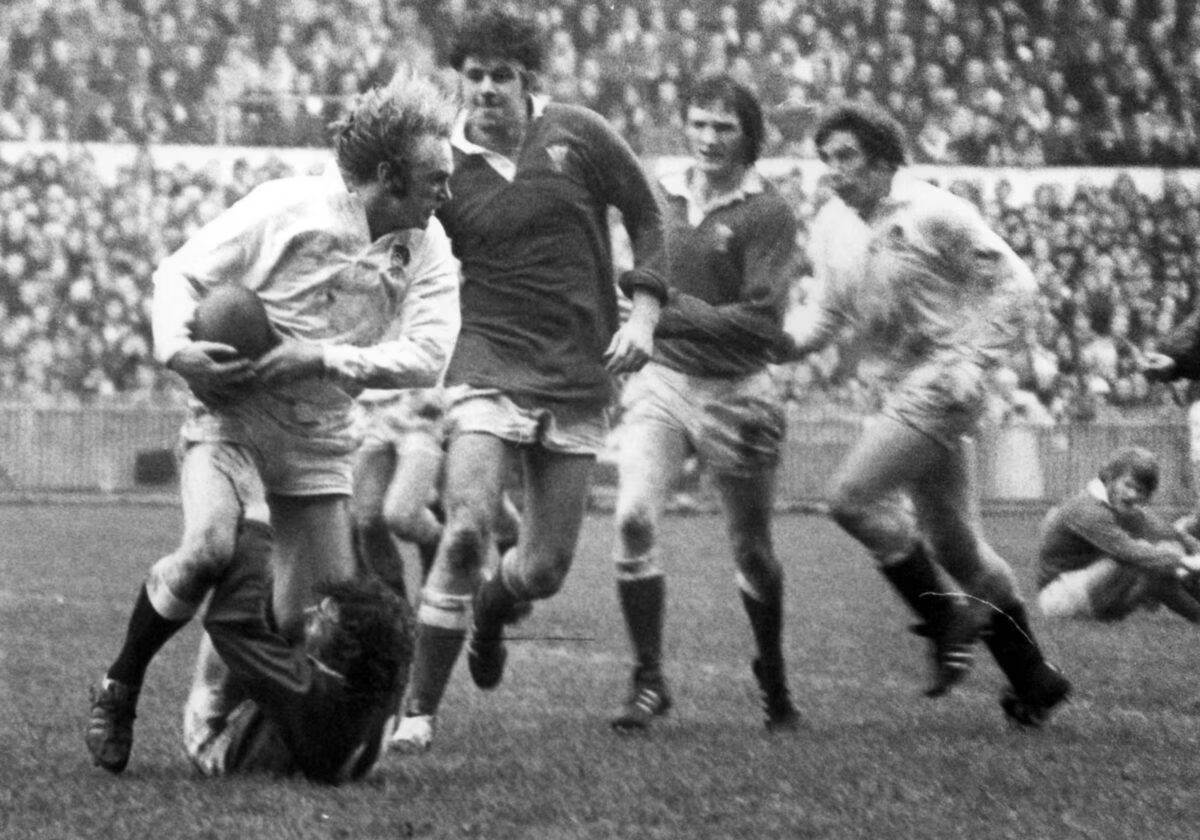Sir Gareth Edwards has led the Welsh tributes to his former British & Irish Lions and Barbarians teammate David Duckham, who has died at the age of 76.
The former Coventry and England centre-cum-wing was due to join Edwards and a number of other members of the famous Barbarians side that beat New Zealand at a special ‘Greatest Try’ lunch celebration at the Celtic Manor Interantional Conference Centre on 27 January to celebrate the 50th anniversary of that game.
“I spoke to David a few weeks ago and he was really looking forward to meeting up with the likes of JPR, Derek Quinnell, Willie John McBride and Mike Gibson once again at the anniversary lunch. It won’t be the same without him,” said Edwards.
“He was sensational on that day, the man of the match for us, and was christened ‘Dai Duckham’ by the Welsh fans. It was a name that stuck because when he came to write his autobiography the title was ‘Dai for England’.”
Although he didn’t score in the 23-11 win by the Baa-Baas against Ian Kirkpatrick’s All Blacks, his side-stepping and swerving runs had the crowd in raptures and the tourists grabbing thin air. It was the day he became an adopted Welshman and further underlined his status as one of the great attacking players of his generation.
He won 36 caps for England, scoring 10 tries, and played in three of the four Tests on the 1971 British & Irish Lions tour. He played eight times against Wales and Edwards in the Five Nations, winning only once. That was at Twickenham in 1974, when he scored a vital try.
“He really was one of the best players of his time. When he played at centre with John Spencer for England they were a superb combination,” added Edwards.
“They were both on the 1971 Lions tour, but Carwyn James, the coach, had his tactical heart set on pairing John Dawes and Mike Gibson in the midfield. He moved David out onto the wing and, after finding his feet there, he played in the final three Tests.”
In New Zealand he ended as the Lions’ tour’s second highest try scorer behind Wales wing John Bevan, who played with him in the Baa-Baas side, with 11 in 16 matches he played. Six of those came in one match, when he played on the right wing against West Coast-Buller, setting a record for a visiting player.
“He was a fantastic finisher and some of the tries he scored live long in the memory. As well as a great player, he was also a great guy off the field,” recalled Edwards.
“People wrongly thought that there was animosity between the Welsh and English players, but we got on very well. On that tour they all learned Calon Lan and would greet us with ‘Bore da’ in the morning and ‘Shwmae’ whenever we met.
“We had great fun with David and all his English teammates. Truth is, we would have loved to have had him in the Welsh set-up.”
Duckham made his international debut against Ireland in 1969 and won the last of his England caps against Scotland in 1976. He was made MBE for his services to rugby and was the Honorary President of the rugby charity Wooden Spoon.
“It was an honour to be David’s partner on the pitch. He was one of the greatest ever players with ball in hand and a pivotal part of the Lions success in 1971, the only Lions tour that ever won in New Zealand,” said former RFU president and Lions manager, John Spencer
“He was widely respected by players around the world and was a gentle, kind man, with a great sense of humour. David will be hugely missed by all who knew him.”

